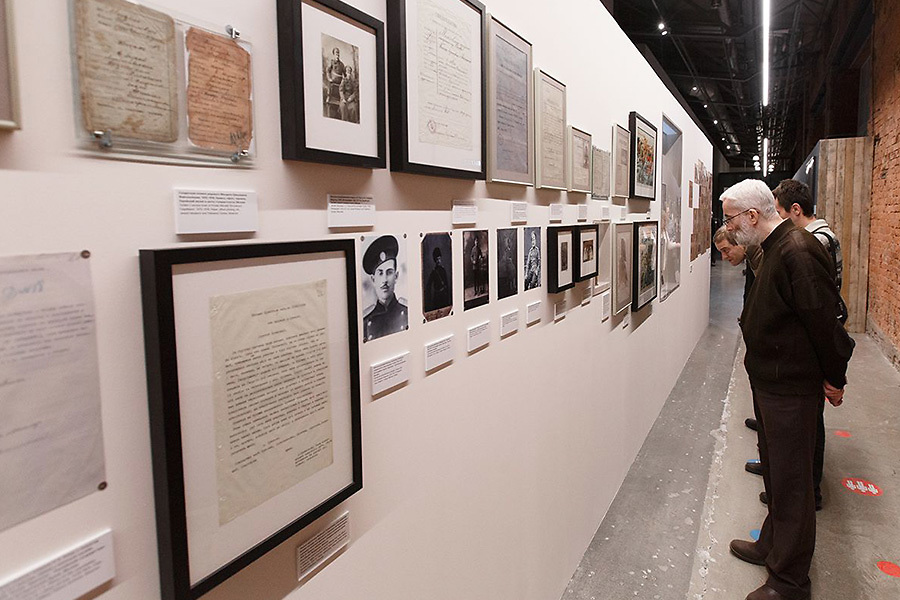


‘Russian Jews and the First World War’: For the Centenary of World War I
This exhibition presents unknown pages from Russian history: documents and items related to the approximately 600,000 Jews who served in the Russian Army and faithfully swore an oath to defend their homeland.
The Museum of Jewish History in Russia, as one partner in the exhibition, has contributed about a third of the items on display.
This unique exhibition consists of rare war materials – documents, photographs, posters, and periodicals – organized in chronological order. It is dedicated to the tragic fate of Russian Jewry at a critical juncture for the country, one that lasted from the outbreak of World War I until the February Revolution of 1917.
Against the backdrop of the general political and socio-economic crisis, Russian Jewry encountered a intensifying wave of persecution that included mass expulsions, looting, and ever more frequent pogroms. The ‘Jewish Question’ came to figure as one of the country’s central political problems, further aggravating the revolutionary tumult.
Moreover, the battles of World War I took place on territories traditionally inhabited by large Jewish populations. Some 4 million people lived in the war zone. Having lost their homes and their assets, many Jews became refugees. Multitudes were forced out of their places of residence after being accused of disloyalty. The tragedy of the situation was further compounded by the fact that at the time about 600,000 Jews served in the Russian Army – on par with other ethnic groups of the citizenry – and faithfully swore an oath to defend their homeland.
No fewer than 100,000 of these Jewish soldiers perished in the war. Jewish charitable funds and organizations took it upon themselves to help the refugees, victims of the war, and those expelled from their homes, once again showing the world the solidarity of the Jewish community in the face of disaster.
However, post-war developments in Russia simply ‘turned over’ this heroic page in the history of Russian Jewry, obscuring it from later generations. The present exhibition, organized with the cooperation of the State Historical Museum, the Russian Museum of Ethnography, the Russian State Library, the State Archive of the Russian Federation, and the Russian State War History Archive, allows for a new look at this period and the troubled fate of Russian Jewry.

